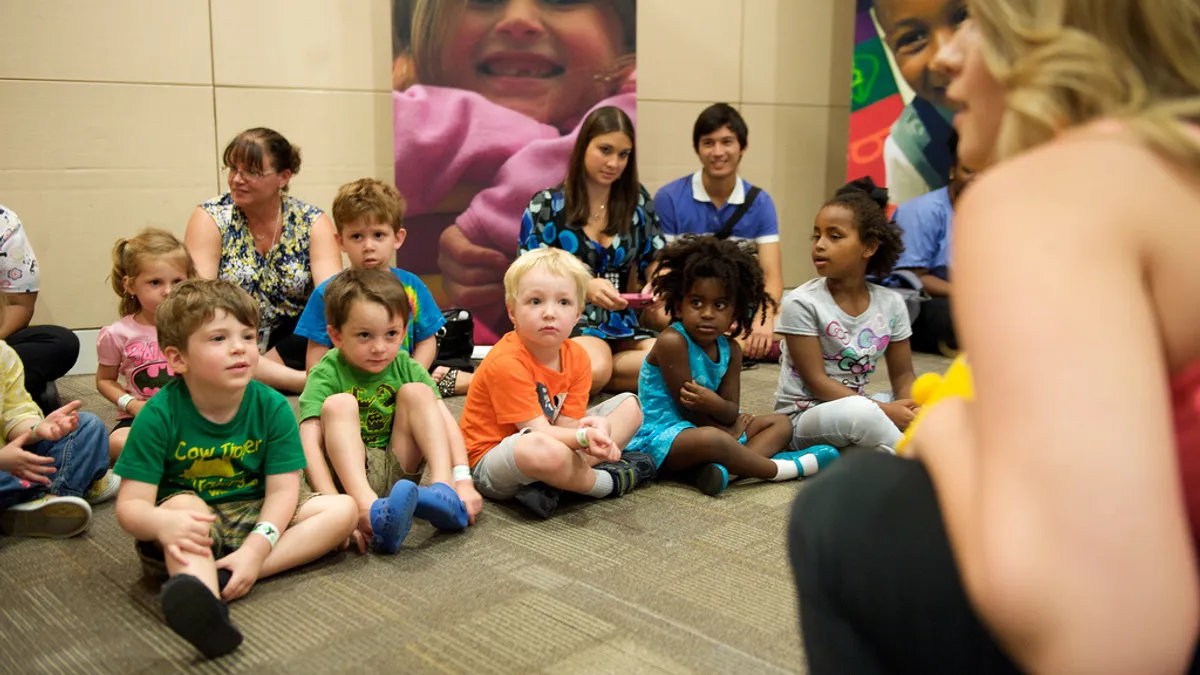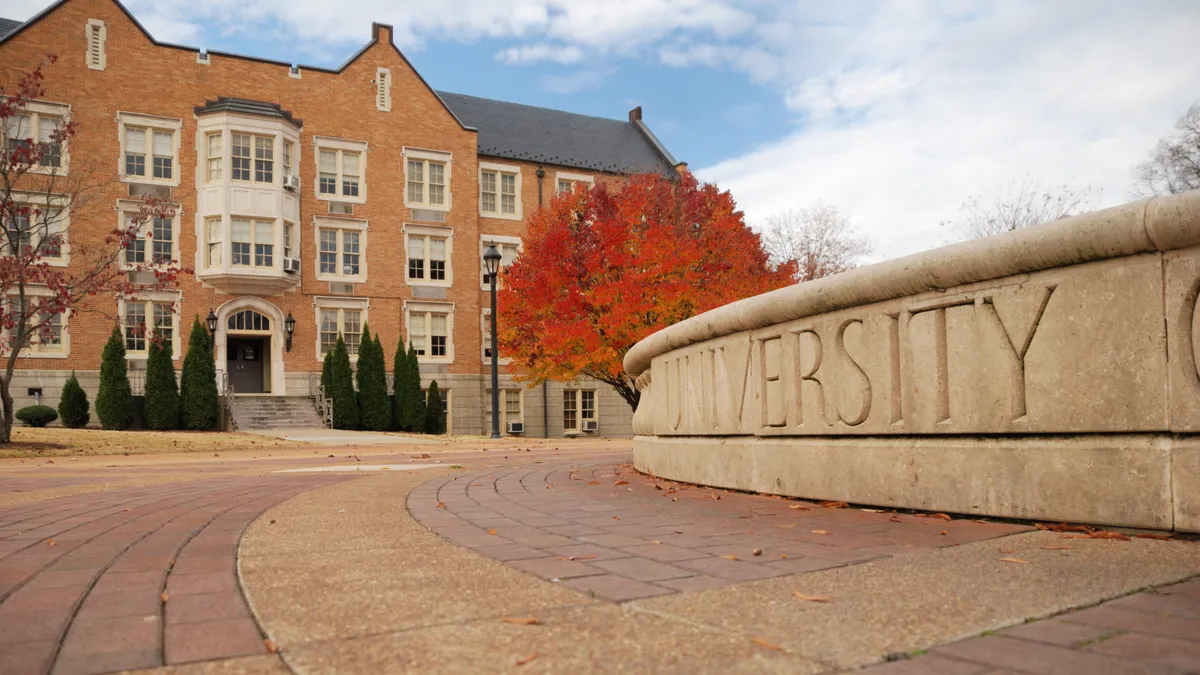Dive Brief:
- Offering programs that better fit early educators’ schedules, allowing flexibility in completing practicum requirements, and integrating remedial education with credit-bearing coursework are a few of the ways community colleges are helping early educators gain greater access to postsecondary education opportunities, according to a new report from Bellwether Education Partners.
- Released today, “It Takes a Community: Leveraging Community College Capacity to Transform the Early Childhood Workforce,” describes the role community colleges currently play in helping early educators earn degrees. In fact, more than 75% of the nation’s 1,047 community colleges have an early-childhood or family studies program, according to the report.
- To strengthen the system, the authors recommend improving data collection on early education students, forming networks focused on continuous improvement and offering programs for English learners. The report also includes recommendations for state policymakers and the federal government.
Dive Insight:
With more K-12 schools adding early-childhood programs, school leaders are increasingly becoming aware of issues related to early-childhood education access and quality, including the longstanding debate over how much education to require of those who teach young children. The related question how public and private programs can afford to pay higher salaries to those early educators who earn college degrees. The issue has received renewed attention in part because of a recent article on the low wages and high turnover in the field.
Authors of the Bellwether report note that while their paper points to promising models, community colleges can’t solve that dilemma. “Innovative community college programs, such as those profiled later in this report, can help more early childhood educators improve their knowledge, skills, and credentials. But they are not a substitute for addressing broader labor market realities.”
The National Association for the Education of Young Children’s Power to the Profession initiative is also trying to address these issues by defining what it means to be an early-childhood education professional. Reports, such as the Bellwether one, are helpful in bringing further attention to the challenges facing early educators and the higher education system. Bellwether has also partnered with New America, a think tank, on a report to be released Monday that examines current education requirements for pre-K teachers, reviews the research on the impact of a bachelor’s degree among early educators, and offers examples of how to improve access to higher education for current and future early educators. “There is one thing that nearly all early childhood experts agree upon: teaching pre-K requires a high level of skill and expertise, and there is a long way to go to ensure that every child has access to a highly qualified teacher,” the report says.









